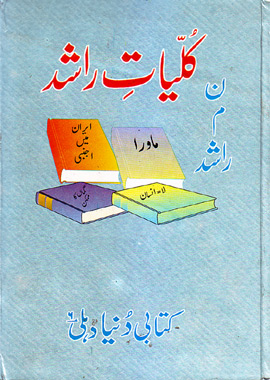N.M. Rashid, born on August 1st, 1910, in the happy household of Akal Garh village (now Ali Pur Chatha) in the district of Gujranwala, Pakistan, emerged as a shining star in the realm of Urdu literature. His father, Raja Fazlullah Chishti, served as the District Inspector of Schools. Rashid completed his matriculation exam from the Government School of the same village in 1926.
Poetry was a topic of discussion in Rashid’s household, with his grandfather being a doctor by profession but an enthusiast of Urdu and Persian poetry. Rashid’s fascination with poetry blossomed at a young age. At the tender age of seven or eight, he penned his first poem titled “Inspector and Bees.” This poem depicted an inspector who visited his school to inspect it but was bothered by bees, eventually leading to his departure after receiving a sting on his head and cheek. For this composition, Rashid received a reward of one rupee from his father, while his grandfather was pleased, yet cautious about Rashid’s inclination towards poetry.
Initially, Rashid wrote some hymns and eulogies, which were published in anonymous publications. Rashid’s father, though not much of a poet himself, admired the works of Hafez, Saadi, Ghalib, and Iqbal. Through his father’s influence, Rashid became acquainted with the works of major Urdu and Persian poets. However, Rashid’s exposure wasn’t confined to Urdu and Persian poetry; he also drew inspiration from English poets like Milton, Wordsworth, and Longfellow. Rashid translated some of their works and became a recipient of awards in literary gatherings at his school.
N.M. Rashid’s poetry marks a significant milestone in Urdu literature. His entry into Urdu literature challenged traditional norms, and his innovative approach paved the way for new subjects, techniques, and stylistic innovations. He introduced free verse poetry, breaking away from the shackles of traditional rhyme and meter. His poetic genius resonates through his diverse range of subjects, from love and longing to social commentary and existential reflection. Rashid’s legacy as a pioneer of Urdu poetry continues to inspire generations of poets and readers alike, making him an indelible part of Urdu literary history.
To Get This Book for Free, Kindly click on this Image:


ادب کے خدمت گاروں کی ادب دوستیوں کا ثمر ہوتا ہے ان کا کلام ان کی کتاب ان کا مجموعہ ان کی کلیات